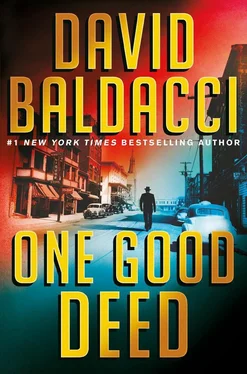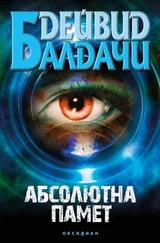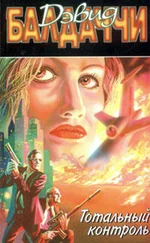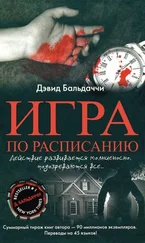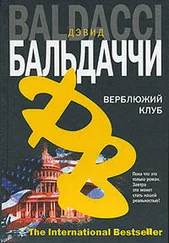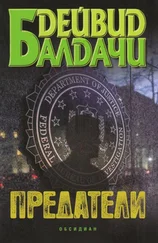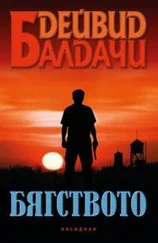“Suddenly? You had not expected to see him there?”
Jackie looked confused. “No.”
“Go on.”
“Then he volunteered to help me get Hank to the hotel. He actually carried him into his room and put him on the bed. That’s how I knew Mr. Archer was strong.”
“What happened after that?”
“We left and went to Mr. Archer’s room, where we had a drink.”
“And that was all?”
Jackie flicked a quick glance in Archer’s direction. “We might have fooled around a bit. After that I left and went home. It was the next day that I found out Hank had been killed.” She took a handkerchief from her purse and dabbed at her eyes. “Poor Hank.”
Archer eyed Marjorie Pittleman, who sat in the front row looking just like a pillar of the community except for the fact that she was shooting venomous tipped daggers at the younger woman.
“What did Mr. Shaw tell you about fingerprints on the doorknob to Mr. Pittleman’s room?”
Jackie slowly removed the hanky from her face. “He told me that Mr. Archer’s fingerprints had been found on the doorknob of Hank’s room.”
“Did that surprise you?”
She didn’t respond.
“Miss Tuttle, I know that you were, well, friends with Mr. Archer, but you took an oath to tell the whole truth. Please do so.”
She sat up straighter, her features firmed up, and she placed her hands on the front rail of the witness box. “Look, the thing is, when we went into the room, I opened the door because Mr. Archer was carrying Hank. And I closed the door after us when we left the room.”
“So you’re saying that Mr. Archer’s fingerprints having been found on the doorknob could only have occurred if he had gone back later and entered the room?”
“Yes, and he later conceded to me that he’d done so.”
“So he went back into the room later. When was that?”
“He said it was after Hank was dead.”
“ He said it was after Mr. Pittleman was dead?”
“Well, yes.”
“Could anyone corroborate that?”
“Um, no.”
Brooks again eyed the jury. “Indeed, Mr. Shaw could not as well. The facts will show that taking into account the time of Mr. Pittleman’s death, the accused would have had ample time to kill him, as his room was only a short distance away. His prints were found on the doorknob, for which he has no explanation, and he had a motive to kill the deceased, because of money owed.” Brooks glanced questioningly back at her. “And perhaps there was another motive for him to murder Mr. Pittleman.”
“I don’t know what you mean,” she said.
“Oh, come, come, Miss Tuttle. Isn’t it a fact that Mr. Archer was sweet on you? He’s a good-looking man around your age. And you just testified that you and he went back to his hotel room and, well, to use your words, ‘fooled around’?”
The courtroom chatter went up several notches after that until the judge beat it back down with his gavel.
“Well, yes we did. But—”
“So presumably Mr. Archer could have seen Mr. Pittleman as a rival for your affections.”
“I don’t think Mr. Archer thought that at all.”
“Really?” said Brooks, once more gazing at the jury, this time with an incredulous look that was mirrored by the majority of the men there.
He turned back to her. “What else can you tell us about Mr. Pittleman’s death? Specifically about the papers representing the debt of your father to Mr. Pittleman? Please be as precise as you can. And keep in mind that we have your earlier statements to Detective Shaw on this subject.”
This time Jackie did not glance in Archer’s direction. Her gaze downcast, she said, “Mr. Archer told me that he had taken the papers representing my father’s debt from Hank’s pocket while he was lying there dead. And he said he gave these papers to my father when the debt was paid.”
“And the sixty-five hundred dollars your father gave to Mr. Archer in repayment of the debt? What happened to it?”
Jackie now glanced in Archer’s direction. Brooks had shifted positions, allowing her to do so. Archer looked back stoically.
“I have no idea.”
“Did he pay the money over to Mrs. Pittleman?”
“Not that I know of.”
All eyes turned to Marjorie, who slowly shook her head.
“So Mr. Archer kept it then?” offered Brooks.
Archer, who had been feverishly turning the curled down pages of one of the law books, rose and said in a tremulous voice, “O-objection, um, spec-speculation on the witness’s part, um, Your Honor.”
“Overruled,” snapped Judge Richmond. “Witness may answer the question.”
“I don’t know. He might have,” she added, half-heartedly.
Brooks said smoothly, “So to sum up your testimony and those who have come before you, Mr. Archer was the only person who was with both men at around the times they died. And he gained a great deal of money by their deaths. Isn’t that right?” When she didn’t answer, he added, “Miss Tuttle?”
“Yes, I guess that’s right,” she replied, her features frustrated.
“And did Mr. Archer tell you that he had killed plenty of men during the war?”
“What?”
“You mentioned to Detective Shaw that you had spoken to Archer about his military service.”
“That’s right.”
“Did he tell you that he had killed during the war? With a gun, a knife, his bare hands even?”
“I suppose most of the men who fought did that.” She glanced at Archer. “I mean, that was sort of the point of them being over there, right?”
There were a few guffaws from the crowd at her response, and Archer noted that a few of the jurors were nodding and looking almost sympathetic now.
Brooks also seemed to have noted this. “But that also means he knows how to kill someone with a knife and a gun, correct?”
To this Jackie said nothing, and Brooks did not persist.
“Nothing further, Your Honor,” said Brooks, who retreated to his table.
“Mr. Archer, would you care to cross-examine this very informative witness?” said Richmond tauntingly, holding up his gavel like a broadsword ready to strike.
“I would,” said Archer, who had once more been consulting a few pages in one of the books.
He closed his eyes and took three deep breaths because he was once more going into battle. And just as he had known as a scout, one mistake here and he was a goner.
This is it, Archer. For all the marbles.
He rose, picked up a piece of paper with scribblings on it, and walked toward the witness box and the woman sitting there.
Archer came to stand directly in front of Jackie, who looked back at him impassively.
“Where have you been all this time, Miss Tuttle? You just disappeared right after your father was killed, and no one’s seen hide nor hair of you till now.”
“I had nothing left in Poca City. Hank was dead. And my father, too. I went to stay with some friends, so I could think things over about what to do going forward.”
“So why in the world did you come back here then?”
“I... I heard what was happening here, and that my presence was required. So I came back. To do my civic duty.”
“Okay, can you tell us what your real relations with Mr. Hank Pittleman were?”
Brooks shot to his feet. “Objection! Relevancy?”
“Goes to motive, Judge,” said Archer sharply, as he gazed at the paper in his hand. This comment drew an astonished look from Brooks.
“How so?” asked Richmond incredulously.
Archer glanced at his paper with the notes on it and then approached the jury.
“Well, the standard for guilt in a criminal case, my law books say, is beyond a reasonable doubt. So it makes sense that if I can show that others had a motive to kill Hank Pittleman, that creates doubt and helps my case, doesn’t it? Consequently, for a man in danger of swinging from a hangman’s rope, I’d say that’s about as relevant as you can get.” Archer turned to look at Richmond. “You agree, Judge?”
Читать дальше
